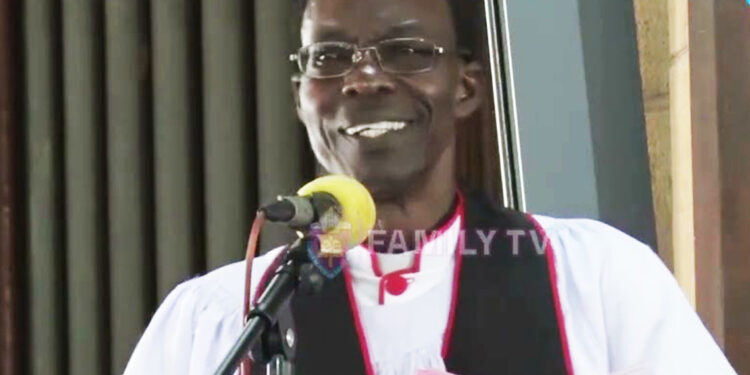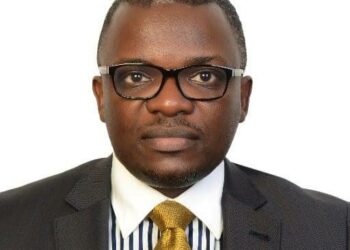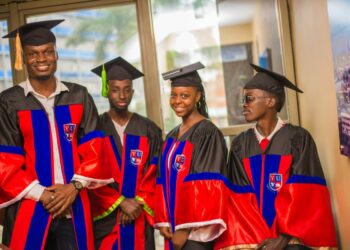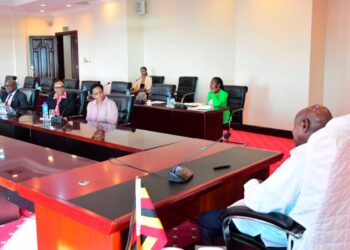On Sunday, Rev. Canon Augustine Magala Musiwuffu delivered a poignant call to action at the inauguration ceremony of Rev. Canon Dustan Kiwanuka Mazinga as the new Dean.
In his impassioned speech, Musiwuffu called on leaders and clergies of the Church of Uganda to take a stand against the growing political persecution and human rights violations affecting the nation. His message, aimed at a congregation that included mostly clergies of CU, resonated deeply as he urged the clergy to speak out in the face of mounting injustice.
Rev. Musiwuffu noted that the clergy holds a unique position in society, one that demands they speak up for the marginalized and oppressed, especially in times of crisis. Musiwuffu expressed deep concern over the increasing number of politically motivated arrests and abductions of opposition figures and their supporters, citing the case of Dr. Kizza Besigye, who has long been subjected to incarceration and persecution by the Ugandan government.
“Speak on what is happening in the country, whether evil or good,” Musiwuffu urged the clergy. He pointed to Besigye’s continued detention, emphasizing that regardless of any legal accusations against him, Besigye deserves a fair trial. Musiwuffu challenged religious leaders to not only address personal or political interests but to also use their voices to call for justice, reminding them that a true leader should stand for what is right, especially in times of oppression.
The cleric also expressed dismay at the growing trend of abductions targeting opposition members, particularly from the National Unity Platform (NUP), a political group that has been vocal in its criticism of the government. He cited the silence surrounding these abductions as a failure on the part of religious leaders to fulfill their role as moral guides for the nation. “The pictures we see on social media paint a different picture of this country,” he lamented, urging the clergy to witness and respond to the harsh realities of life for many Ugandans.
Rev. Musiwuffu did not hold back in criticizing the complacency of certain religious leaders, accusing them of prioritizing personal gains over the suffering of ordinary citizens. He described how some in the clergy had aligned themselves with political elites, effectively silencing their prophetic voice in favor of political power. Musiwuffu warned that such silence could be perceived as complicity in the oppression faced by marginalized groups in the country.
“Speak out for justice and truth,” Musiwuffu emphasized. He argued that religious leaders must not turn a blind eye to the hardships faced by ordinary Ugandans, especially those who suffer under the weight of political persecution and human rights violations. For Musiwuffu, silence was not an option, particularly when the state’s power was being used to curtail the freedoms of its citizens.
In his address, Musiwuffu also highlighted the broader national challenges that Uganda faces, urging the government to promote fair governance and equal opportunities for all citizens. He pointed out persistent issues such as poor road infrastructure, inadequate education services, and what he described as purposeless leadership that lacks vision and commitment to solving these problems.
As Uganda prepares for its upcoming elections, Musiwuffu stressed that leaders must govern with integrity and a sense of purpose. He emphasized that it should not be a crime to voice opinions or to come from a region that is not aligned with those in power. For him, political persecution should not define Uganda’s democracy, and every Ugandan, regardless of political affiliation, deserves the right to be heard and treated fairly.
Musiwuffu’s appeal comes at a critical juncture in Uganda’s political landscape. As the country heads toward another election cycle, the pressure to maintain political control has led to increased repression and censorship.
The regime’s response to political dissent through arrests, detentions, and targeted violence has made it clear that the government is willing to go to great lengths to suppress opposition.
Rev. Musiwuffu’s call for religious leaders especially the Church of Uganda to stand against these injustices carries great weight. In many parts of the world, religious institutions have been at the forefront of movements for justice and human rights, and Uganda is no exception.
As institutions of moral authority, religious leaders have the power to influence public opinion and challenge governmental abuses of power. Their silence, however, risks perpetuating the oppression faced by the Ugandan people.
Do you have a story in your community or an opinion to share with us: Email us at editorial@watchdoguganda.com













